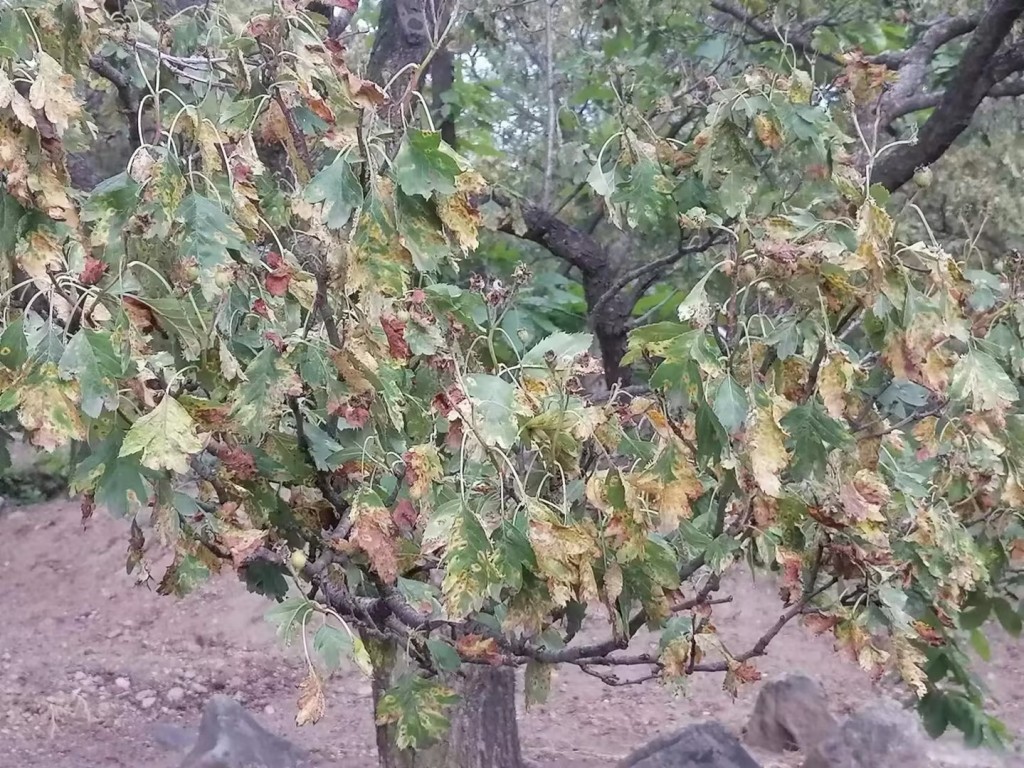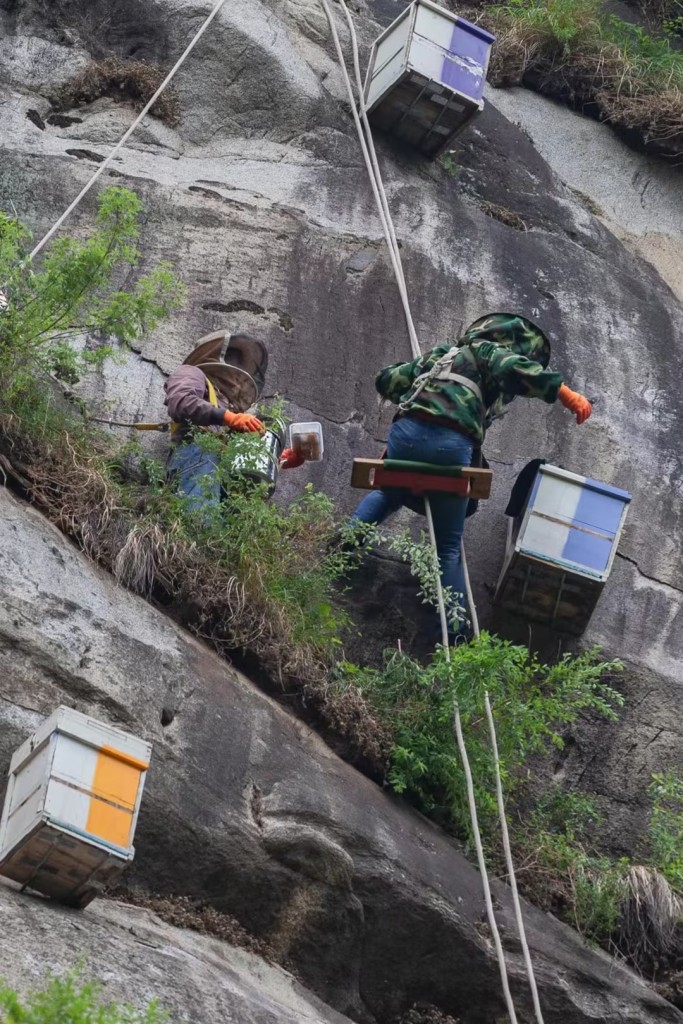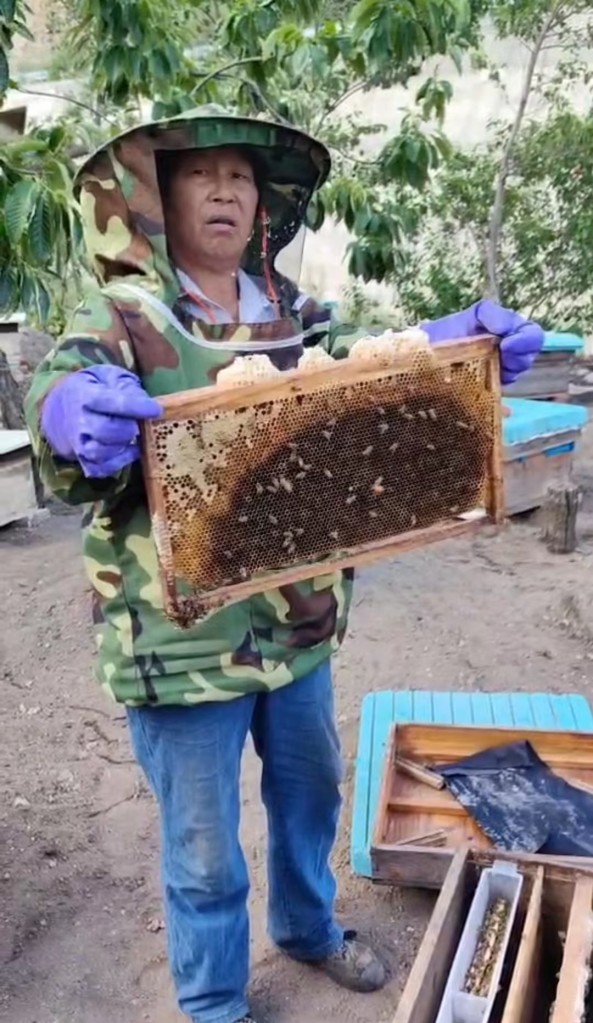The Asian honeybee, also known as the Chinese bee (scientific name: Apis cerana), was classified as a "national-level livestock and poultry genetic resource conservation breed" by the Chinese Ministry of Agriculture in 2006. It is often referred to as the "giant panda of the bee world." To protect these bees, the China Biodiversity Conservation and Green Development Foundation (CBCGDF) has supported the establishment of "Asian honeybee conservation areas" in various locations throughout China, including one in Beijing.

However, in July 2023, Chinese bees faced a heatwave crisis, causing significant damage to beekeepers in Miyun, Beijing!
After a gap of seven years, El Ni?o struck again, bringing severe heatwaves to many countries in the Northern Hemisphere. On July 6, 2023, Beijing issued a red alert for high temperatures, with the mercury soaring above 40°C.
The CBCGDF received a distress call from the Miyun Chinese Honeybees Beekeeping Cooperative:
"Continuous extreme heatwaves have caused the plants on the mountains to stop blooming, and some have even withered away."
"The Asian honeybee is a major pollinator for forest plants, relying on a variety of green flowering plants for food. Now, with no blooming plants in the surrounding area, the bees have lost their source of sustenance!"
"This year, the Asian honeybees in Miyun are facing the risk of extinction, and beekeeping businesses are struggling with financial difficulties and potential closure."

As a native species in China, the Asian honeybee has a history of beekeeping that dates back thousands of years, with populations distributed in many regions across the country. However, the introduction of the Western honeybee, also known as the European honeybee, has led to the displacement of Asian honeybees in artificial beekeeping due to their larger size, higher honey production, and better disease resistance. This has significantly reduced the living space for Asian honeybees and led to attacks on them, resulting in a decline in their populations. Particularly, the North China variant of Asian honeybees has been pushed to the brink of extinction. The population of Asian honeybees in Miyun plummeted from 40,000 colonies to just 40 colonies at one point. After nearly a decade of cultivation, the population gradually recovered to over 20,000 colonies, making it a unique Asian honeybee breeding base in Beijing.

With the recovery of the bee population, beekeepers in Miyun have established the Chinese Honeybees-keeping Cooperative and placed beehives on cliffs to allow the Asian honeybees better access to a variety of flowering plants in the mountains. The "cliff beehives" on the cliffs around the Miyun Reservoir have become a local feature. During honey harvesting, beekeepers transform into skilled climbers resembling "Spider-Man," bringing back pure Asian honeybee honey.
However, the continuous high temperatures have had a sustained impact on the survival of Asian honeybees and have posed challenges for the aging beekeepers. "Most of our beekeepers are between 60 and 70 years old, with even the youngest being 50, and the oldest nearing 80," said Zhao Yijie, the head of the Beijing Mizhiyun Beekeeping Cooperative, who expressed the challenges faced by Asian honeybee farming in Miyun. "In such extreme high-temperature weather, beekeepers have to wear veils, long pants, and coats, and their physical well-being is at great risk and facing significant challenges."

As the largest ecological conservation area in Beijing and the most important water source protection area, Miyun District boasts the lowest annual average PM2.5 concentration in the city. It is the region with the largest forest area, the best wetland resources, and the richest biodiversity. Beekeeping in Miyun is closely intertwined with the area's pristine ecological environment. In recent years, the beekeeping industry in Miyun has experienced rapid development and is currently the largest beekeeping region in Beijing. The quality of its honey has won numerous national-level awards. In 2021, Fengjiayu Town in Miyun was awarded the title of Beijing's first "Asian Honeybee Town," making it the first industrial characteristic town designated by the China Beekeeping Association during the "14th Five-Year Plan" period.
Since 2006, Asian honeybees have been listed in the Ministry of Agriculture's "National-level Livestock and Poultry Genetic Resource Conservation Directory." Due to the continuous decline in numbers, Asian honeybees are also classified as a second-level protected animal at the national level and a first-level protected animal in Beijing.
"The Asian honeybees prefer living in high-altitude areas with cold climates. When the temperature reaches 7°C, they come out to gather nectar and pollinate flowers. Their habitat is typically mountainous regions. This also means that their primary food source is wild plants on the mountains, including some wild herbs. By feeding on the essence of a hundred flowers, they produce high-quality and nutritious honey," proudly explained Zhao Yijie about the Asian honeybee products in Miyun. However, now, this pride has turned into concern due to the escalating temperatures.
"Our Asian honeybee honey has excellent quality. We only harvest honey once a year, and it has a relatively higher price. However, with the ongoing high temperatures and the lack of nectar sources for Asian honeybees, we have to use the stored honey in our inventory to feed the bees. But the cost of doing so is too high, and it is challenging to sustain it for an extended period. We are really worried about how to overcome this crisis and save our bee colonies," expressed Zhao Yijie.
Article by Tammy
Edited by xiaoqing
Translator: Ahua
Editor: Irene
Contact: v10@cbcgdf.org; +8617319454776

Contribution
Do you know? CBCGDF is a non-profit organization. We rely on crowd-funding and donations. You have the opportunity to help us to advance biodiversity conservation. Donate TODAY to power up the movement to make it a better world for all life.
